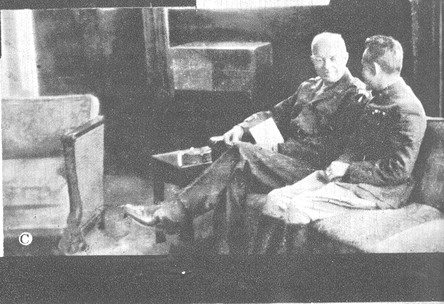Precisely why other alternatives are way better. [/quote]
The other alternatives, however, would not have meant an absence of military threat from China, though. Korea and Western Europe remain garrisoned by the US military because of external threats - a continuing US force in Taiwan might have been the end result of any of the imagined scenarios. Perhaps a US force would be preferable for many than the PLA, but the US presence could also have made Taiwan more of a tension point as well. And while I think that US troops generally conduct themselves in a disciplined, martial and honorable manner, the legacy of US military behavior outside of Europe generally, and in Asian countries specifically, has not been free of controversy either.
That interpretation is too simplistic. It’s like saying Latinos, Poor whites and African Americans who votes for the Republicans and especially planning to vote for Trump are fine with being marginalized. [/quote]
I don’t think it is “simplistic” at all. Votes can and should have consequences. The alternative is disenfranchisement or some kind of condescending neo-colonialism where someone gets to pick-up what is really good for the Aboriginals (because someone needs to look after them). Kinda like “Han-splaining” in place of “mansplaining” (not a dig at hansioux, but rather at the majority Han, or those who so identify).
I’m not sure where you are going with the Republican/Trump analogy . . . what I see is a party and a candidate that seem to espouse views which white American voters, especially the working class, finding favorable. In Trump’s eye the decline of the white working class is because of Mexican immigrants, Muslim terrorists, unfair Chinese industrialists, Latino judges, educated women and countless others (collectively, “Them”) and if an American leader would just get tough and stand-up for what’s right then wealth, power, prominence, jobs, respect and prosperity would again flow to the rightful American ruling majority. This message seems to resonate with a significant part of the White American electorate and is off-putting to most of the minority (and a sizeable part of the women’s) electorate as well. This is exactly my point - people vote for the parties/candidates that they think will benefit them and that espouse a worldview they find comfortable. Why should Taiwan be different. What is a better alternative than listening to the votes of a community?
[quote=“hansioux”][quote=“Zhengzhou2010”]
Moreover, the Japanese certainly also bear responsibility for diminishing Aboriginal culture and society. I don’t know enough of what impact the Dutch and Spaniards may have had, although their impact was probably more limited given their shorter and lesser dominion. [/quote]
No one is arguing about the facts that colonialists committed a lot of wrongs. Though, we are talking alternatives for Taiwan immediately post WW2. The governments of Japan and the US weren’t exactly encouraging the conservation of native languages elsewhere immediately post WW2, however, they certainly weren’t engaged in systematically wiping out native languages either.[/quote]
You know I’m no fan of the KMT, and I regard their repression of languages other than Mandarin as one of their greatest displays of ethnic bigotry and prejudice. But the KMT did not come upon a tabula rasa when it came to Aboriginal languages - they were fairly endangered already, I think. And if the Hoklo super-majority hasn’t been able to find it within themselves to make preserving their language a priority, I can easily see why for the Aboriginals (and maybe the Hakka) that this just isn’t that important.
[quote=“hansioux”][quote=“Zhengzhou2010”]
Yes, and the Philippines (with a different history) also became independent. I could be wrong but I think that Okinawa had no such choice for self-determination. It is an interesting speculation whether Taiwan would have had the same route as Okinawa and Hawaii or Guam. I’ll give some further thought to this.[/quote]
In the 60s and the 70s, supporters of Okinawa Independence used returning to Japan as their rally call, and they got what they asked for without needing a referendum.[/quote]
Interesting, so “Okinawa Independence” really was a call for Japanese Irredentism . . . I’m sure that would make the Chinese ethno-imperialists go even more bananas when they think about TI if they were to hear about the Okinawa precedent.


